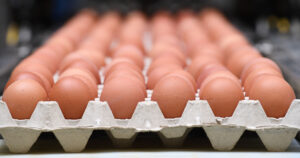
Romania has expanded the list of goods imported from Ukraine that require a license to enter the country to include eggs and poultry meat, Euractiv.ro reported, citing information from the Romanian government. The publication reminded that Romanian poultry producers faced a “serious problem” due to the import of eggs and poultry meat from Ukraine, which are sold at prices significantly lower than the cost of production in Romania.
According to the Minister of Agriculture Florin Barbu, after discussions with representatives of the poultry industry, the government decided to add eggs and poultry meat to the list of products that can be imported from Ukraine only with a license. The list also includes cereals, seeds, flour and sugar.
“It is our duty to protect Romanian production,” Barbu said.
In addition, he reminded that Romania, as a member of the European Union, must comply with certain production requirements in the poultry sector, which is why Romanian poultry farmers have “30% higher costs than in Ukraine.”
Barbu also emphasized that there is no ban on imports of Ukrainian eggs and poultry meat.
“We have made this decision on licensing to ensure that when the food industry needs these products and Romania is not completely self-sufficient, only Romanian processors will be able to import them under license,” he added.
After the European Commission decided not to extend the ban on imports of Ukrainian grain to five neighboring EU countries (Bulgaria, Poland, Romania, Slovakia, and Hungary) in September 2023, Romania introduced import licenses for grains and oilseeds from Ukraine and Moldova. This measure, introduced in October last year, was extended.
According to this decision, only Romanian companies engaged in the production of oil and fat products, flour milling, animal feed production and livestock farming are entitled to import agricultural products from Ukraine and Moldova.
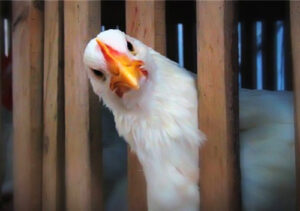
The Eastern Interregional Main Department of the State Service of Ukraine for Food Safety and Consumer Protection has announced the introduction of restrictions on imports of hatching eggs, poultry and poultry products from the Republic of Poland to Ukraine due to the registration of Newcastle disease in the country, the press service of the agency said.
According to the order of the Chief State Veterinary Inspector of Ukraine dated July 13, 2023, the ban does not apply to products that have been treated by a method that guarantees the destruction of the causative agent of this disease according to the requirements for the import (transfer) to the customs territory of Ukraine of food products of animal origin, feed, hay, straw, as well as by-products of animal origin and products of their processing, processing, approved by the order of the Ministry of Agrarian Policy and Food № 553 of November 16, 2018 year
Newcastle disease is known as pseudoplague of birds, or Asian plague – a contagious and fatal viral disease affecting all types of birds (chickens, pigeons, turkey, etc.). One of the most contagious poultry diseases in the world, caused by a virus of the Paramyxoviridae family, in which many birds die without showing any symptoms. Pseudorabies plague can cause death even in vaccinated poultry.
According to Polish media reports, the disease was detected for the first time in 50 years at a poultry farm in Bialystok district, where 43.41 thousand chickens are kept for slaughter.
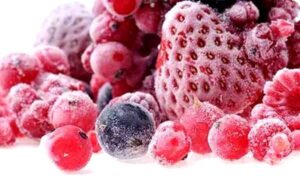
The European Commission is studying the situation on the poultry, egg and frozen fruit markets and is ready to return to tariff quotas if Ukraine maintains the current scale of their supplies to Europe, EU Agriculture Commissioner Janusz Wojciechowski said.
During the session of parliamentary committee on agriculture, which took place on Monday, he said that at the moment there is no reason to prohibit import of any other goods, except wheat, corn, rapeseed and sunflower, from Ukraine to Bulgaria, Poland, Romania, Hungary and Slovakia. These goods are also allowed to transit the territory of these five countries, reports pap.pl.
According to Wojciechowski, market inspections, according to the current legal regime, will end in November, and according to the updated rules, if the procedure begins in June, they will end in September.
“The situation in the poultry market is not only local, but European-wide, and it is very likely that if imports do continue on this scale in the current months, there will be a return to the tariff quotas that were in place before liberalization,” he said.
As the commissioner said, the EC is monitoring the situation in the egg market. There is an increase in imports, and this is also covered by the excessive import procedure. “If this procedure shows excessive imports, there will be quotas or an import ban,” he added.
According to Wojciechowski, imports of frozen fruit from Ukraine to the EU reached 44,000 tons in 2022, an increase of 18.9 percent from 37,000 tons in 2021.
“This situation will be controlled. If during the season it becomes clear that there is a threat to Polish, European producers, the European Commission is ready to impose restrictions even in an emergency, express mode. It depends on the situation during the season, how the situation will develop in the coming months,” he stressed.
According to the Commissioner, since April 2022 until the end of March 2023, Ukraine exported 48 million tons of wheat, corn, rapeseed and sunflower seeds, 24 million tons of which were sent to Africa and Asia, about 24 million tons – to the EU countries, 10.3 million tons of which – to the five frontline countries.
Voytsekhovskyy specified that 4.1 million tons of Ukrainian grain arrived in Poland, of which 3.3 million tons remained in the country, and 700 tons were in transit.
The largest transit country, through which the Ukrainian grain passed, was Romania, through which 9 million tons passed, of which 2.5 million tons remained in the country.
As Voytsekhovskyy stated, there was no uncontrolled import of grain from Ukraine to the EU. Because of the growing problem in the frontline countries, a temporary import ban was imposed on Bulgaria, Poland, Romania, Hungary and Slovakia. “Existing restrictions are ‘likely’ to be extended,” wrote the Polish publication.
The European Commissioner recalled that free trade with Ukraine is very beneficial to the Polish economy. In 2022, almost 10 billion euros of goods were exported from Poland to Ukraine, and less than 6 billion zlotys (EUR 1.254 billion) were imported. At the same time, he noted that this is 1/3 of all EU exports, the value of which was EUR30 billion. In second place is Germany with exports of EUR4 billion.
“If someone asked me why I am in favor of liberalization of trade with Ukraine, it is only because not only political but also economic reasons demanded it,” the Polish edition quoted the European commissioner as saying.
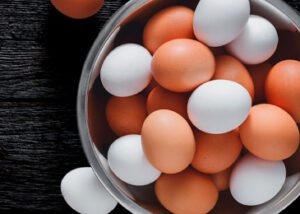
Agro-industrial group of companies Ovostar Union, one of the leading producers of eggs and egg products in Ukraine, in 2022 reduced the production of shell eggs by 9% compared with 2021 – to 1.55 billion units, and sales – by 6%, to 1.08 billion units.
According to a group report posted on the Warsaw Stock Exchange website on Tuesday, Ovostar increased its egg exports by 27% to 290 million eggs last year, which pushed the share of foreign shipments in its sales up 4 p.p. – The company’s share of foreign sales rose four percentage points to 27%, up from 23%.
“Supply chain issues, additional export and import regulations, internal and external migration, temporary occupation of some territories in the first half of the year, and power outages in the second half of the year forced the company to cut investments in new stock and streamline other processes. Although by the end of 2022 the total flock was down 14%, the group was able to mitigate the impact of negative factors, resulting in a decline in production of only 9%,” the holding quotes its general director Boris Belikov in a report.
According to him, last year egg sales dropped only 6% down, which was partly due to a decrease in egg processing. In addition, the holding benefited from the dynamics of world prices of eggs and egg products in the shell.
Ovostar also processed 427 million eggs in 2022, which is 15% less than in 2021. At the same time, at the end of the first nine months of last year the lag was 10% against the nine months of 2021.
Ovostar Union’s bird population as of December 31, 2022 was 7.2 million birds (down 14.3% from the same date a year earlier), including 6 million laying hens (-14.3%).
Last year, Ovostar’s sales of dry egg products decreased by one-third compared to 2021, to 2,13 thousand tons, and their export share in total sales was 68%, while in 2021 it was 64%.
In turn, sales of liquid egg products during this period decreased by 26% to 10.62 thousand tons, their share of exports was 40% compared to 28% in 2021.
According to the report, 2.54 thousand tons of dry egg products were produced in 2022 (-6% compared to 2021), and liquid egg products – 10.79 thousand tons (-24%).
The average selling price of shell eggs last year increased by 34% in UAH terms against 2021 and reached 2.9 UAH/ piece, while in USD the increase was 13% – to $0.09/ piece. The average selling price for dry egg products doubled in UAH equivalent to 277.94 UAH/kg, and rose 71% in USD – to $8.59/kg, liquid egg products – 42% in UAH, to 66.79 UAH/kg, and 20% in USD – to $2.06/kg.
Ovostar Union is a vertically integrated public holding company, one of the leading producers of shell eggs and egg products in Europe. The producer has been a certified exporter to the EU since 2015.
The group’s holding company, Ovostar Union N.V., held a 25% IPO on the Warsaw Stock Exchange in mid-June 2011 and raised $33.2 million. The majority stake in the company is owned by Prime One Capital Limited, which is controlled by its CEO Boris Belikov and Chairman of the Board Vitaliy Veresenko.
“Ovostar reported $1.65 million in net income for 2021, down 38 percent from 2020. Its EBITDA was down 29% to $5.7 million, while revenue increased 35% to $133.3 million.
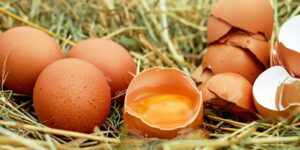
Ovostar Union agro-industrial group of companies, one of the leading producers of eggs and egg products in Ukraine, in January-March 2022 received $ 16.44 million in net loss against the Russian military invasion against $ 4.72 million in net profit in the first quarter of 2021, according to the message of the agrarian group on the Warsaw Stock Exchange on Tuesday.
“The egg processing plant in Makarov (Bucha district, Kyiv region) was temporarily shut down until the city was deoccupied by Ukrainian troops in late March. A subsequent inspection of the plant revealed signs of uncritical damage to administrative and industrial buildings … Management expects to resume the operation of the plant after the completion of repair work in the premises, “the company said in a report on the consequences of the Russian invasion.
Ovostar’s revenue in the first quarter of 2022 decreased by 13.7% compared to January-March 2021 – to $ 27.71 million. The gross loss of the group of companies in the first quarter of this year amounted to $ 13.38 million against $ 6.91 million gross profit in January-March 2021, also for this period it received $ 15.67 million in operating loss against $ 4.37 in operating profit last year.
In the structure of Ovostar’s revenue, 75% was accounted for by egg sales ($ 20.8 million), of which 87% ($ 18.1 million) accounted for sales in Ukraine. The egg products segment generated 25% of the agroholding’s revenue ($ 6.8 million), with 58% of its sales ($ 3.93 million) in the domestic market.
“The main sales channel of the egg segment is large national retail chains. Geographically, sales are concentrated in the central part of the country, and the share of sales in the most affected regions does not exceed 10%. Market losses in the east and south where a large number of internally displaced persons temporarily reside, “the Ovostar report said.
The document states that the assets of the agricultural holding as of March 31, 2022 decreased compared to December 31, 2012 by 18.3% to $ 115.3 million, its long-term debt decreased by 1.8 times to $ 5.8 million, and current growth – by 1% to $ 14.5 million
“Since the beginning of the Russian military campaign, the group has faced significant obstacles to export activities due to serious logistics disruptions. In particular, the blockade of the port of Odessa blocked access to Middle Eastern markets, where goods were shipped by sea. after the company was issued a special license, “the egg producer said in a statement.
Ovostar also noted its dependence on imports of certain feed additives, vaccines and spare parts for equipment, which are included in the list of critical imports and are imported into Ukraine without restrictions. The management is also looking for adequate substitutes for imported supplies on the Ukrainian market.
According to the report, as of March 31, 2022, Ovostar Union shares were owned by: Prime One Capital Limited (67.93%), controlled by Ovostar CEO Boris Belikov and Chairman of the Board Vitaly Veresenko; Generali Open Funds Emergency Fund (10.39%), Fairfax Financial Holdings Limited (10.39%), Aviva Open Funds Emergency Fund (5.02%).
Ovostar Union Group is a vertically integrated public holding company, one of the leading producers of chicken eggs and egg products in Europe. The manufacturer is a certified exporter to EU countries since 2015.
The group’s holding company is Ovostar Union N.V. in mid-June 2011 held an IPO of 25% of the shares on the Warsaw Stock Exchange and raised $ 33.2 million. The majority stake in the company is owned by Prime One Capital Limited, which is controlled by its CEO Boris Belikov and Chairman of the Board Vitaly Veresenko.
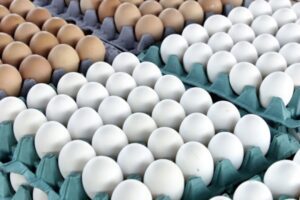
Demand for eggs quadrupled in March in the LotOK convenience store chain, demand for pet products tripled, for groceries doubled, and for tobacco products and drinks and non-alcoholic beverages almost doubled. Demand for confectionery grew 1.5 times, but demand for vegetables and bakery products remained at the same level.
Such data was given in a commentary to Interfax-Ukraine by marketing director of the LotOK store chain Olha Momchylovych.
At the same time, she said that the demand structure of large supermarkets and convenience stores is significantly different.
“If in peacetime for small stores located in residential buildings and residential complexes, the top categories of demand are tobacco products, soft drinks, confectionery, dairy products and groceries, then in the first days of the war, groceries took the top position in demand, and eggs joined the top categories,” Momchylovych said.
At the same time, demand for dairy products temporarily decreased in March, which, the expert emphasized, was the result of a disruption in supply chains.
“In April, we see almost the full recovery of milk sales,” Momchylovych said.
At the same time, she predicts, April results in terms of the structure of demand will differ from March due to the lifting of restrictions on the sale of alcohol and alcoholic beverages, as well as the resumption of operation of a number of enterprises.
“During the first ten days of April, the demand for alcohol increased almost 2.5 times, the level of demand for eggs is still at the level of March, and the demand for groceries has returned to pre-war levels,” she said.